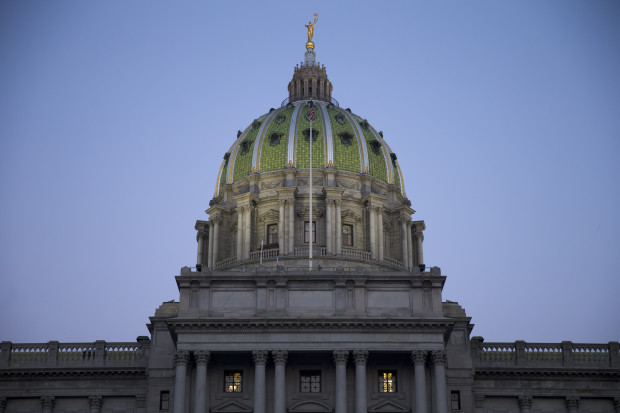Bill would overhaul Pennsylvania’s regulatory process
-
Marie Cusick
A bill under consideration in the state House changes the way Pennsylvania enacts new regulations on everything from education, to health, and the environment.
HB 1237 would add new requirements to Pennsylvania’s Regulatory Review Act, an already byzantine process by which regulations are scrutinized by the general public, state legislators, and an independent commission. The bill is scheduled to be considered by the House Commerce committee Monday.
Rep. Dawn Keefer (R-Cumberland) is the prime sponsor. She says although legislators already have some existing oversight on agencies making regulatory changes, more is needed.
“Bills have been written in very broad terms. It leaves a lot of room for interpretation,” she says. “It’s creating more work for the agencies, and you have un-elected bureaucrats making decisions.”
The bill has upset some environmental advocates, including Joanne Kilgour, Chapter Director of the Sierra Club of Pennsylvania.
“There’s an effort in the state and nationally to try to restrict the action of the executive in terms of regulation,” she says. “The way this bill is written, it wouldn’t just apply to environmental regulations, although we are very concerned with how it would impact the state Department of Environmental Protection.”
HB 1237 is modeled after the proposed federal REINS Act (Regulations from the Executive in Need of Scrutiny), which requires Congressional approval for all new major regulations. The Pennsylvania measure requires the legislature to sign off on all economically significant regulations, defined as regulations creating a direct or indirect annual impact of $1 million or more.
Kilgour questions the constitutionality of the bill, noting it requires affirmative action from legislators; if they do not act, the regulations would die.
“It’s not like [the legislature is] a high-functioning body that’s able to agree on really critical business the rest of us depend on,” she says, pointing to the ongoing state budget impasse.
Keefer says it’s the agencies that have overstepped their bounds, “I just think it’s more accountability, quite frankly.”
A year ago, Governor Tom Wolf, a Democrat, vetoed a similar bill passed by the Republican-controlled legislature which would have given them more authority over the regulatory process.Wolf spokesman J.J. Abbott says the governor is also against this new bill.
“We strongly oppose this measure that would cause greater uncertainty for businesses and inject politics into the regulatory process,” he writes in an email.

















